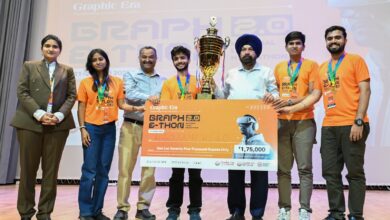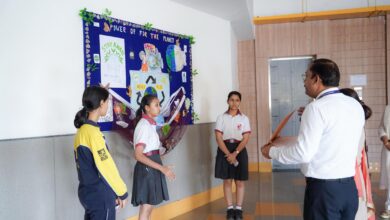‘Mission Butterfly’, a forgotten trend setter for waste management at Nainital

‘Mission Butterfly’, a forgotten trend setter for waste management at Nainital
Vipin Kumar
Dehradun , Feb 6
Nainital is one of the most attractive and pleasant tourist destinations situated in the Kumaon foothills of the outer Himalayas, Uttarakhand. It is a hill station, situated at an altitude of 1938 m(6,350 ft) above sea-level. Nainital town is developed around and circum-fencing ‘Naini Lake’ with a geographical spread of 11.73 sq km. Nainital and other surroundings lake areas have emerged as major tourist destinations which sustain the economy of the region. These lake areas are the naturally formed eco- systems with pristine beauty that are to be conserved against the environmental degradation caused by the human activities around the lake areas.
One such problem is related to the collection and scientific disposal of solid waste. To this effect , efforts have been undertaken by NLRSADA, under NLCP to check the deterioration of the lake and its surrounding ecosystem.
A comprehensive solid waste management programme which Integrates all aspects from waste generation to waste disposal was conceived to address cradle to grave approach. The major producers of solid waste in Nainital and the surrounding lake areas are tourists, large number of hotels accommodating tourists, boarding schools, institutions, commercial establishments and households. About half of the solid waste generated in Nainital is disposed down the hill/storm water drains, which finally reach the lake catchments deteriorating the lake eco system.
The concerns of the environmentalists and intellectual community regarding the health of Nainital Lake, lead to the evolution of The Mission butterfly SWM programme. It was conceptualized on the basis of people’s participation to help in minimization, source separation and promoting recycling of resources as far as possible. The citizens were to participate actively in the endeavor so that their indifference towards garbage and its visibility could be eliminated ensuring high level of cleanliness. The management of Plastics right from source of generation to their end use disposal through recycling was guaranteed by setting up a recycling plant at Kathgodam, Nainital district, which at present is the only end use disposal facility of plastics in Uttarakhand.

The strategic intervention was devised through integration of major stakeholders viz. Lakes Special Area Development Authority (NLRSADA), Municipal Corporation , Nainital, Lok Chetna Manch, an NGO and the people of Nainital ran from 2009 till 2012. This multidisciplinary approach was strengthened by constituting cluster based sanitation committees of 160 households. The day to day monitoring of waste collection, segregation and disposal was entrusted to ASHA (Accredited Social Health Activist) who are well connected with the community.
The results of the mission started pouring in about three months and by the end of the second quarter it had enveloped the entire town. The Biodegradable waste was treated by composting and the Non-Biodegradable waste was sent for recycling to Kathgodam. The boarding schools and Hotels initiated back yard composting thereby minimizing the collection costs. The town was now prepared to pay user charges as the schedule and service was fixed for step door collection. The drains and culverts started looking healthier.

The consistency in the programme was maintained through frequent public consultations and interaction with the stakeholders. The technical issues were taken care of by specialists to fill in the gaps to make the entire activity a cyclic one. The mission was evaluated by a third party Water Aid Bangalore and by the CAG who were highly impressed by this decentralized, people’s participatory programme for managing solid waste. It is a unique model for hill towns which is easily replicable given the will and determination.
The success of this programme could have been a trend setter for the Urban Local Bodies who are still groping in dark for source separation without community participation. There is no segregation as there are no ‘Swachta Samitis’. There are no senior citizens for day to day monitoring and helping the waste collecting crew. Interestingly we talk of technology but the biggest resource is an individual citizen who needs to be roped in through making him responsible for his waste. No workshops shall help unless the concept of ‘Swachata Samitis’ is revived which is buried in the files of the Urban Development Department.
( Vipin Kumar is an eminent environmentalist who has worked on waste management particularly in the Himalayan region for past more than three decades.)




